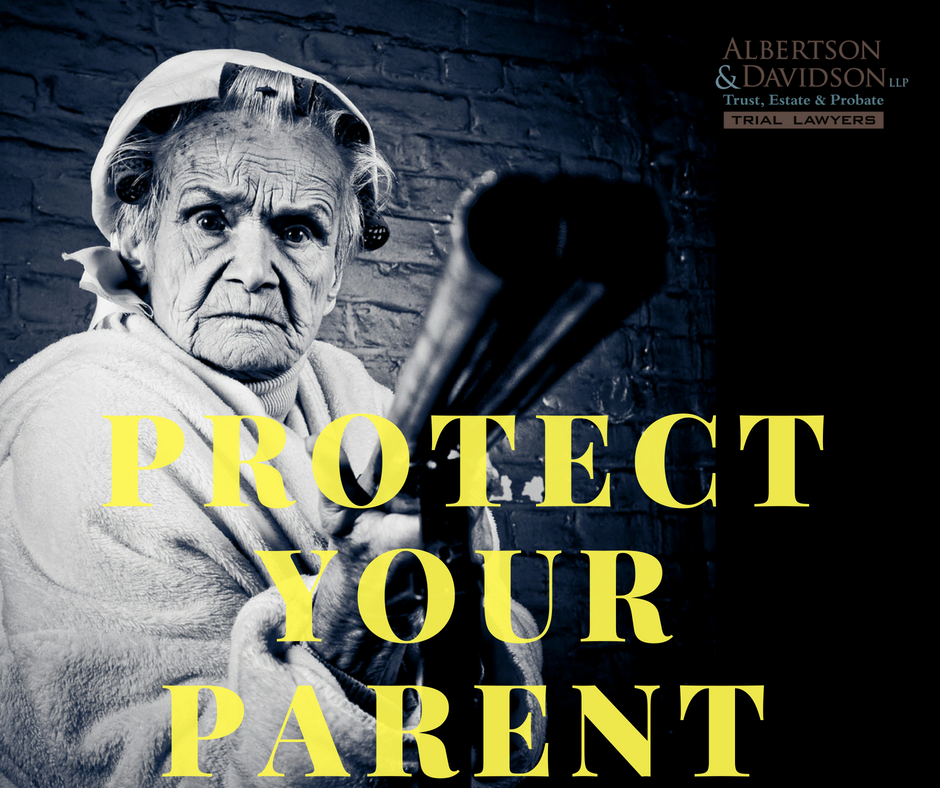
How do you protect a parent who you think is being abused by the Trustee of a revocable trust or some other bad actor? You might think that your parent lacks capacity to manage their own financial affairs, or perhaps you think they are subject to undue influence and being manipulated. The problem with revocable trusts in California is that while the person who has the power to revoke (meaning your parent) is alive and has capacity, only the parent has a right to take actions against the trustee or against the trust.
Beneficiary Status
You might be a named beneficiary who will received assets after your parent’s death, but your status as a successor beneficiary does not give you any rights to take action now. It only gives you rights to take action later, once the trust becomes irrevocable, which usually occurs after your parent dies.
So what do you do to protect your parent now? Unfortunately, your options may be limited. Generally, the only way to protect a parent is to file a petition in Probate Court seeking either (1) conservatorship over your parent, or (2) a determination under the trust document that your parent lacks capacity. Either way, you must allege in court that you think your parent lacks capacity or is subject to undue influence. And not surprisingly, your parent may not like you making those allegations against them. Your parent may be insulted by you claiming they lack capacity because most people do not want to admit that.
What Could Happen After You Take Action?
Further, your parent may choose to disinherit you from the Trust in retaliation for you filing a conservatorship action. So what are you to do? Do you risk being disinherited to try to help your parent, or do you sit back and only take action after your parent dies? There are no right answers; and these are not easy decisions.
If you do go to court and claim lack of capacity or undue influence, then you better be right. That means you must have good medical evidence of lack of capacity or good evidence proving undue influence is occurring. If you go into court and you are right, then you could be given the power to be conservator or successor trustee—giving you the power to help your parent. But if you make these allegations and you are wrong then you will probably be disinherited.
Again, these are not easy decisions. We strongly recommend that you talk to a lawyer, consider your options, and assemble your evidence prior to taking action in court.
